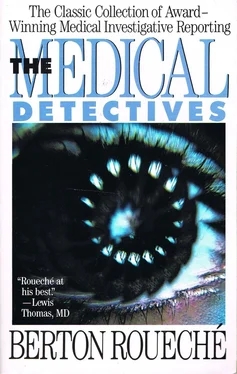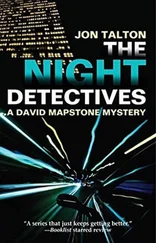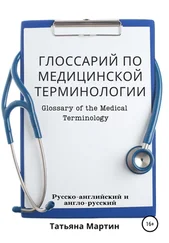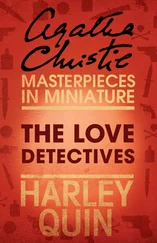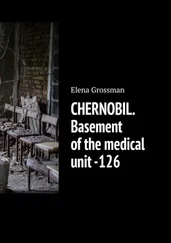"I was willing to rule out gas," Dr. Greenberg said. A folder containing data on the case lay on the desk before him. He lifted the cover thoughtfully, then let it drop. "And I agreed that the oatmeal sounded pretty suspicious. That was as far as I was willing to go. Common, ordinary, everyday food poisoning—I gathered that was what Pellitteri had in mind—wasn't a very satisfying answer. For one thing, cyanosis is hardly symptomatic of that. On the other hand, diarrhea and severe vomiting are, almost invariably. But they weren't in the clinical picture, I found, except in two or three of the cases. Moreover, the incubation periods—the time lapse between eating and illness—were extremely short. As you probably know, most food poisoning is caused by eating something that has been contaminated by bacteria. The usual offenders are the staphylococci—they're mostly responsible for boils and skin infections and so on—and the salmonella. The latter are related to the typhoid organism. In a staphylococcus case, the first symptoms rarely develop in under two hours. Often, it's closer to live. The incubation period in the other ranges from twelve to thirty-six hours. But here we were with something that hit in thirty minutes or less. Why, one of the men had got only as far as the sidewalk in front of the cafeteria before he was knocked out. Another fact that Pellitteri had dug up struck me as very significant. All of the men told him that the illness had come on with extraordinary suddenness. One minute they were feeling fine, and the next minute they were practically helpless. That was another point against the ordinary food-poisoning theory. Its onset is never that fast. Well, that suddenness began to look like a lead. It led me to suspect that some drug might be to blame. A quick and sudden reaction is characteristic of a great many drugs. So is the combination of cyanosis and shock."
"None of the men were on dope," Dr. Pellitteri said. "I told Greenberg I was sure of that. Their pleasure was booze."
"That was O.K.," Dr. Greenberg said. "They could have got a toxic dose of some drug by accident. In the oatmeal, most likely. I couldn't help thinking that the oatmeal was relevant to our problem. At any rate, the drug idea was very persuasive."
"So was Greenberg," Dr. Pellitteri remarked with a smile. "Actually, it was the only explanation in sight that seemed to account for everything we knew about the clinical and environmental picture."
"All we had to do now was prove it," Dr. Greenberg went on mildly. "I asked Pellitteri to get a blood sample from each of the men before leaving the hospital for a look at the cafeteria. We agreed he would send the specimens to the city toxicologist, Dr. Alexander O. Gettler, for an overnight analysis. I wanted to know if the blood contained methemoglobin. Methemogiobin is a compound that's formed only when any one of several drugs enters the blood. Gettler's report would tell us if we were at least on the right track. That is, it would give us a yes-or-no answer on drugs. If the answer was yes, then we could go on from there to identify the particular drug. How we would go about that would depend on what Pellitteri was able to turn up at the cafeteria. In the meantime, there was nothing for me to do but wait for their reports. I'd theorized myself hoarse."
Dr. Pellitteri, having attended to his bloodletting with reasonable dispatch, reached the Eclipse Cafeteria at around five o'clock. "It was about what I'd expected," he told me. "Strictly a horse market, and dirtier than most. The sort of place where you can get a full meal for fifteen cents. There was a grind house on one side, a cigar store on the other, and the 'L' overhead. Incidentally, the Eclipse went out of business a year or so after I was there, but that had nothing to do with us. It was just a coincidence. Well, the place looked deserted and the door was locked. I knocked, and a man came out of the back and let me in. He was one of our people, a health inspector for the Bureau of Food and Drugs, named Weinberg. His bureau had stepped into the case as a matter of routine, because of the reference to a restaurant in the notification report. I was glad to see him and to have his help. For one thing, he had put a temporary embargo on everything in the cafeteria. That's why it was closed up. His main job, though, was to check the place for violations of the sanitation code. He was finding plenty."
"Let me read you a few of Weinberg's findings," Dr. Greenberg said, extracting a paper from the folder on his desk. "None of them had any direct bearing on our problem, but I think they'll give you a good idea of what the Eclipse was like—what too many restaurants are like. This copy of his report lists fifteen specific violations. Here they are: 'Premises heavily infested with roaches. Fly infestation throughout premises. Floor defective in rear part of dining room. Kitchen walls and ceiling encrusted with grease and soot. Kitchen floor encrusted with dirt. Refuse under kitchen fixtures. Sterilizing facilities inadequate. Sink defective. Floor and walls at serving tables and coffee urns encrusted with dirt. Kitchen utensils encrusted with dirt and grease. Storage-cellar walls, ceiling, and floor encrusted with dirt. Floor and shelves in cellar covered with refuse and useless material. Cellar ceiling defective. Sewer pipe leaking. Open sewer line in cellar.' Well. . ." He gave me a squeamish smile and stuck the paper back in the folder.
I can see it now," Dr. Pellitteri said. "And smell it. Especially the kitchen, where I spent most of my time. Weinberg had the proprietor and the cook out there, and I talked to them while he prowled around. They were very cooperative. Naturally. They were scared to death. They knew nothing about gas in the place until there was no sign of any, so I went to work on the food. None of what had been prepared for breakfast that morning was left. That, of course, would have been too much to hope for. But I was able to get together some of the kind of stuff that had gone into the men's breakfast, so that we could make a chemical determination at the Department. What I took was ground coffee, sugar, a mixture of evaporated milk and water that passed for cream, some bakery rolls, a five-pound carton of dry oatmeal, and some salt. The salt had been used in preparing the oatmeal. That morning, like every morning, the cook told me, he had prepared six gallons of oatmeal, enough to serve around a hundred and twenty-five people. To make it, he used five pounds of dry cereal, four gallons of water—regular city water—and a handful of salt. That was his term—a handful. There was an open gallon can of salt standing on the stove. He said the handful he'd put in that morning's oatmeal had come from that. He refilled the can on the stove every morning from a big supply can. He pointed out the big can—it was up on a shelf—and as I was getting it down to take with me, I saw another can, just like it, nearby. I took that one down, too. It was also full of salt, or, rather, something that looked like salt. The proprietor said it wasn't salt. He said it was saltpetre—sodium nitrate—that he used in corning beef and in making pastrami. Well, there isn't any harm in saltpetre; it doesn't even act as an antiaphrodisiac, as a lot of people seem to think. But I wrapped it up with the other loot and took it along, just for fun. The fact is, I guess, everything in that damn place looked like poison."
After Dr. Pellitteri had deposited his loot with a Health Department chemist, Andrew J. Pensa, who promised to have a report ready by the following afternoon, he dined hurriedly at a restaurant in which he had confidence and returned to Chatham Square. There he spent the evening making the rounds of the lodging houses in the neighborhood. He had heard at Mr. Pensa's office that an eleventh blue man had been admitted to the hospital, and before going home he wanted to make sure that no other victims had been overlooked. By midnight, having covered all the likely places and having rechecked the downtown hospitals, he was satisfied. He repaired to his office and composed a formal progress report for Dr. Greenberg. Then he went home and to bed.
Читать дальше
